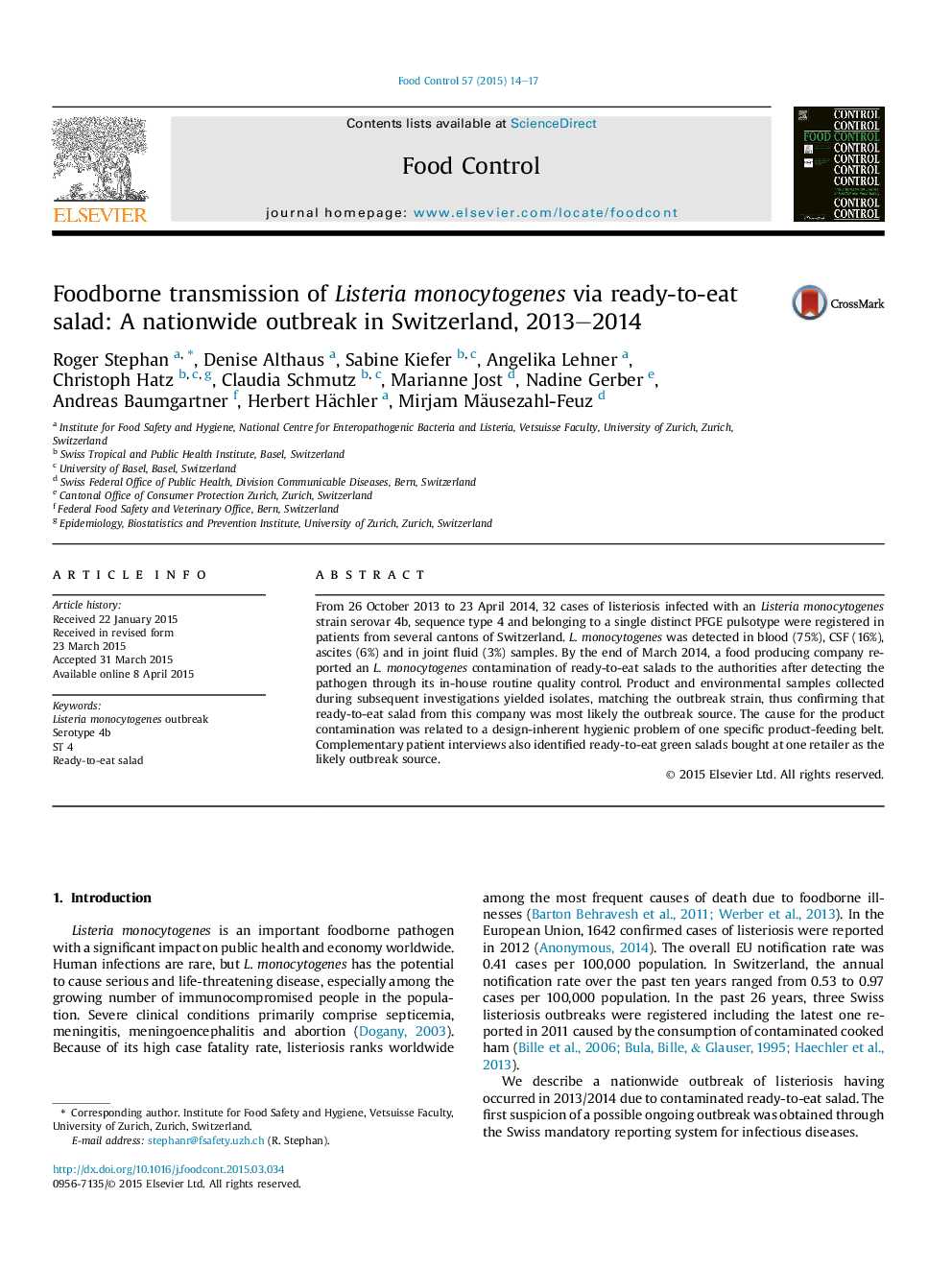| Article ID | Journal | Published Year | Pages | File Type |
|---|---|---|---|---|
| 6390660 | Food Control | 2015 | 4 Pages |
Abstract
From 26 October 2013 to 23 April 2014, 32 cases of listeriosis infected with an Listeria monocytogenes strain serovar 4b, sequence type 4 and belonging to a single distinct PFGE pulsotype were registered in patients from several cantons of Switzerland. L. monocytogenes was detected in blood (75%), CSF (16%), ascites (6%) and in joint fluid (3%) samples. By the end of March 2014, a food producing company reported an L. monocytogenes contamination of ready-to-eat salads to the authorities after detecting the pathogen through its in-house routine quality control. Product and environmental samples collected during subsequent investigations yielded isolates, matching the outbreak strain, thus confirming that ready-to-eat salad from this company was most likely the outbreak source. The cause for the product contamination was related to a design-inherent hygienic problem of one specific product-feeding belt. Complementary patient interviews also identified ready-to-eat green salads bought at one retailer as the likely outbreak source.
Keywords
Related Topics
Life Sciences
Agricultural and Biological Sciences
Food Science
Authors
Roger Stephan, Denise Althaus, Sabine Kiefer, Angelika Lehner, Christoph Hatz, Claudia Schmutz, Marianne Jost, Nadine Gerber, Andreas Baumgartner, Herbert Hächler, Mirjam Mäusezahl-Feuz,
